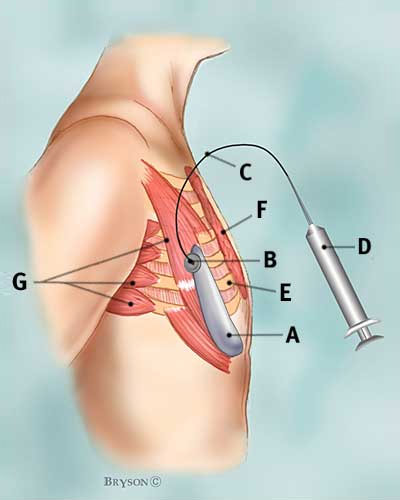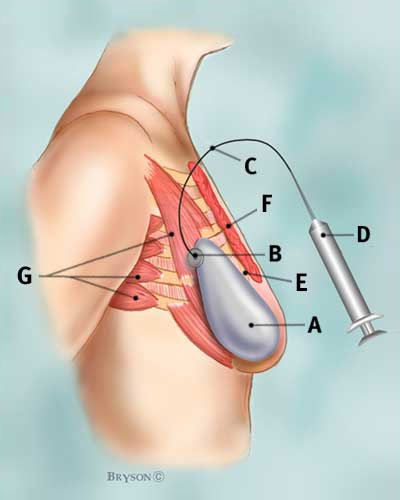Bachelor Contestant Shares Personal Story of Double Mastectomy

By:
"Bachelor" alum Lesley Anne Murphy is chronicling her decision to get a preventative double mastectomy—and everything that comes after—putting a public voice to what is usually a private journey.
The season 17 Bachelor contestant elected to undergo a preventative double mastectomy in April after she "tested positive for the BRCA 2 gene mutation which greatly increases" her breast cancer risk, PEOPLE reported.
Her mother was diagnosed with breast cancer "almost three years ago to the day and came out a badass survivor!" she blogged on Instagram, adding, "it’s because of her diagnosis that I underwent genetic testing and can now do something about it. Knowledge is power."
"The biggest misconception about breast cancer is that you can't do anything but wait for it to come if it's coming for you," Murphy told ATTN: via email.
"Genetic testing probably saved my life and will hopefully save the lives of other women and men who are positive for the gene," she added.
On Monday she underwent reconstructive surgery.
"My plastic surgeon said he tried many different variations and sizes and after consulting every woman in the hospital😉he decided on 500 CC implants, which is actually smaller than my expander size when you take into consideration those CCs plus the bulky expander."
Thanks to Angelina Jolie's decision to go public with her double mastectomy, people are largely more familiar with what that surgery entails, but few realize there are more steps, and more surgeries that follow.
BreastReconstruction.org explains the various surgeries that can come with a breast cancer diagnosis. There's post-mastectomy reconstruction with an expander implant—basically, it's what comes after a mastectomy but before reconstructive surgery, i.e., permanent implants (if one chooses to have reconstructive surgery; not all patients do. They refer to living without reconstructive surgery as "going flat" or "living flat.")
Before reconstructive surgery, Murphy was outfitted a tissue expander, "an implant that’s more like a balloon."
A tissue expander is what surgeons insert into the chest following a mastectomy. As BreastCancer.org explains, it "stretches the skin to make room for the final implant."
 Bryson/Breastcancer.org - breastcancer.org
Bryson/Breastcancer.org - breastcancer.org
 Bryson/Breastcancer.org - breastcancer.org
Bryson/Breastcancer.org - breastcancer.org
As Murphy wrote in a post (below), "I would literally look down in my plastic surgeon's office and watch my nurse insert the most massive needle into my boobs where they would then grow right before my eyes."
"In just 83 days," she adds, "I went from a completely flat chest in horrific pain to somewhere around a comfortable C-cup. Well...as comfortable as I can be in these expanders. The best way I can describe them is like two big boulders on my chest."
Despite the pain and discomfort, Murphy is remaining positive.
Knowledge is power and I feel powerful knowing I kicked cancer's ass before it could kick mine.
Why do some choose to get double mastectomies?
"Some women who’ve been diagnosed with early-stage breast cancer in one breast choose to have that breast and the other healthy breast removed—a double mastectomy," Breastcancer.org notes, adding the reason both are removed is because "of an understandable fear that a new, second breast cancer might develop in that breast."
But that doesn't mean this treatment is one size fits all.
Doctor Mike Varshavski, D.O., told ATTN: via email, "This is a question whose answer cannot and should not be generalized. There has to be a discussion between an individual and a doctor weighing what is most important for that individual. For example, there are several instances where it can be deemed 'appropriate' to have what we call prophylactic (risk-reducing) mastectomy."
Some of those instances include but are not limited to "those who have already had cancer in one breast, a strong family history, and positive genetic testing" but, "this does not mean doctors will recommend each of those types of patients to get a risk-reducing surgery. The surgery certainly carries risk, both physical and emotional, and it does not protect you 100% from developing breast cancer. That is why an open and honest conversation about current research, statistics, and personal feelings on the matter needs to occur before any recommendation."
A full month after her first surgery, Murphy told her Instagram followers, "Today, I feel really good." She added: "In the past 4 weeks, I have read countless stories from y'all about your own trials with breast cancer or gene mutations. I read every message that comes through and want you to know your support has eased my recovery in ways you can't imagine. I hope my posts and blogs have in turn helped those walking a similar path."
